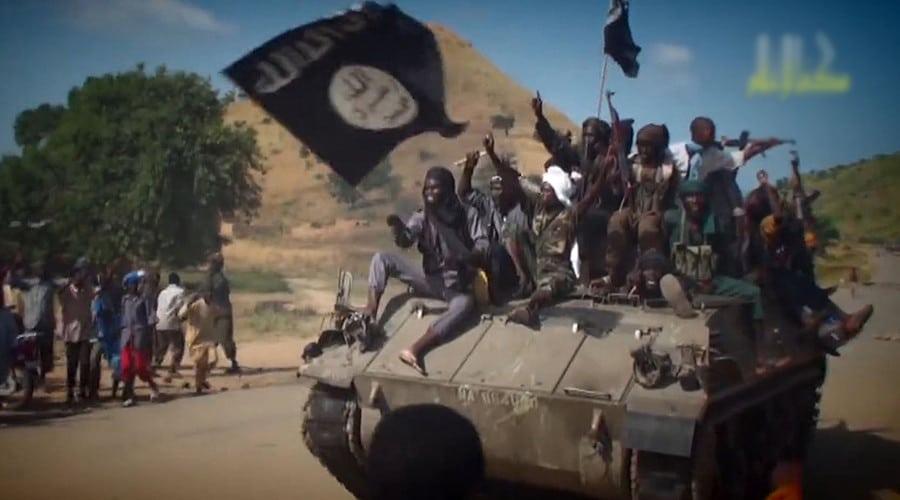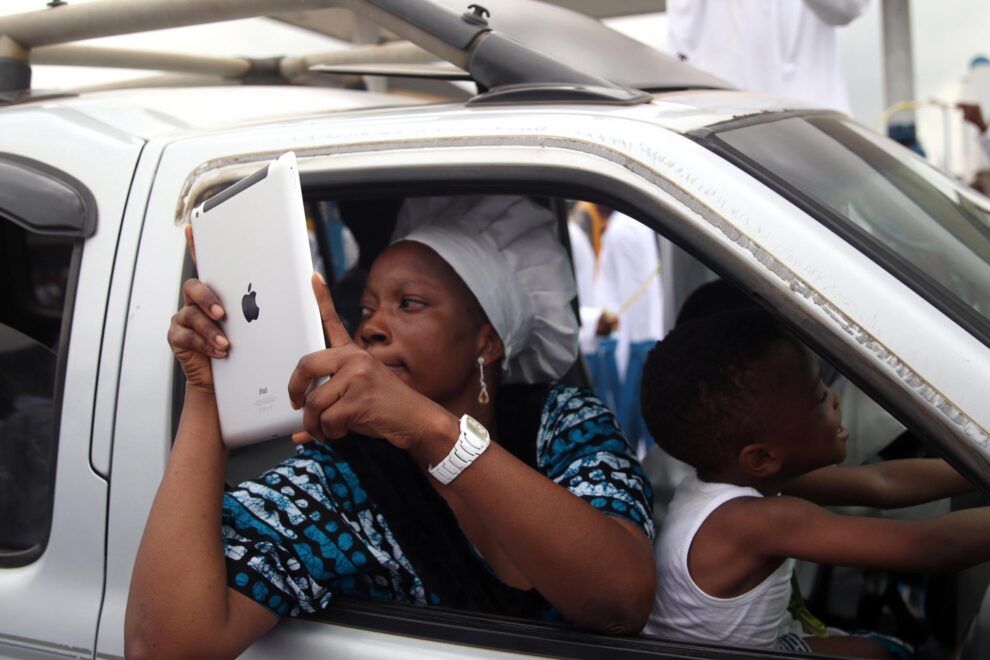

Christians take part in the Palm Sunday ceremony in Lagos.
“Thousands of people have been killed by well-organized, well-equipped and well-funded radical Islamic extremist groups, and more than 150 villages have been looted. There are over 2 million internally displaced people and thousands more have been kidnapped for sexual exploitation and ransom.” this is the reverend speaking Henry Ndukubaarchbishop and primate of the Anglican Church of Nigeria, one of the countries in the world where being a Christian is a dangerous option.
“This is violence that we see on a daily basis. We see how our people are killed or kidnapped, and our communities are destroyed, ”he said in an interview with Independent religious, at the head of one of the most faithful churches in an African country with a population of more than 225 million people. The geography is practically divided into two parts: the Muslim north and the Christian south: Muslims make up 53 percent of the society, and Christians about 46 percent. Both are among the largest communities on the planet.
A multiplicity threatened by jihadist terrorism. In recent years, Nigeria has become one of the epicenters of attempts to restore the truncated caliphate in Syria and Iraq. Today, the country is the headquarters of the IS (Islamic State, abbreviation in English) for West Africa (ISWA) province. The extremists have even taken control of territory in at least a dozen of Nigeria’s 36 states. “It hurts a lot when you have to help collect the bodies of murdered women or children. What did they do to deserve such a fate? asks Ndukuba, pastor of a parish with 25 million Nigerians.

Violence, intimate experience
Some turbulence which also shakes the work Matthew Hassan Kuhak, Bishop of the Catholic Diocese of Sokoto in northwestern Nigeria. “For most Nigerians, violence has become personal. This has been the case for the past 40 years, although the situation has worsened over the past six or seven years. Any Nigerian knows someone who has been kidnapped, who has been the victim of violence, or who has seen their temple, church and mosque demolished,” says Kuhak, 70.
His most intimate biography is dotted with family dramas. “My nephew was kidnapped a few months ago and my brother five years ago. I know one seminarian killed by bandits and another priest killed in cold blood,” he replies. “And we kidnapped priests, released them for big money, which our diocese cannot afford. This is the reality for most Nigerians.”
Apart from the faces, the figures crudely show the growing violence. Attacks on the Christian community are part of a wider trend. Violence against civilians increased by 28% between 2020 and 2021. “And it continued throughout 2022,” warns the Armed Conflict Location and Event Data Project (ACLED), a US initiative that collects data on violence around the planet. One of the most worrying scenarios is the spread of Islamist violence to the southern states with the largest Christian populations. Last June, a black month, dozens of worshipers were killed in Ondo state after the leaders of the Methodist and Catholic churches in two other states were kidnapped.
Blessed with natural resources but pervasive corruption, a combination of government blunders, years of mismanagement and a culture of violence is holding back what should have been one of the most powerful nations in the world.
Matthew Hassan Kuhak, Bishop of the Diocese of Sokoto
Political tensions are coupled with the growing activity of jihadist terrorist movements such as Boko Haram, which target not only Christians but also Muslim communities that challenge their strict interpretation of Islam. “These attacks also target moderate Muslims to prevent them from being moderate in their approach to politics, law and order,” Ndukuba admits. “In the north and in the center of the country, they seek to intimidate and oust the local Christian population. They are being forced to flee and leave their possessions,” he adds.
Persecution, which, in his opinion, “accompanies Christians since the formation of the nation, especially in the north of the country, and with which we have learned to live.” The unstable political situation in the country and the social gaps experienced by its population fuel the violence. “Blessed with natural resources, but pervasive corruption, a combination of government blunders, a series of military coups, years of mismanagement and a culture of violence is holding back what should have been one of the most powerful nations in the world,” Kuhak laments. “And that made its population vulnerable to poverty, disease, violence and death.”
Shed of jihadist terror
A combination that has become a fertile breadbasket for terrorism across vast swaths of the African continent, replacing the also troubled Middle East as the favored territory of brands like al-Qaeda or the Islamic State. “After more than a decade of fighting Boko Haram, insurgency, banditry and ethno-religious violence, our weary citizens are mired in doubt, and their natural happiness is marred by a dark and deep despair,” admits Bishop Katholik. “Every day there is news about kidnappings, armed robberies, kidnappings for ransom, murders and killings of innocent citizens. Our sacred places have become death camps. Hundreds of believers were killed in mosques and churches across the country. In response, most of the world shrugs and moves on as if this simmering violence in Africa’s most populous country will never reach people elsewhere.”
Religion has become a tool for manipulating historical information between Christians and Muslims.
A bloody spiral that continues to challenge the resistance of a community determined to stay. “Religion has become a tool for manipulating historical data between Christians and Muslims in order to oppose ethnic groups to each other,” warns the bishop. “Most Muslims in northern Nigeria continue to echo the sentiments of the old Caliphate (which existed from 1804 to 1903) which considered Christianity an alien religion and instead treated Islam due to its relative longevity (present in parts of Nigeria since the 11th century) . century) as an African religion,” he recalls. Kuhak accuses the northern Muslim elite of “seeing the institutions of the modern state as a foreign imposition trying to supplant their own religion, and Western education as a foreign enemy of Islam.” “The Nigerian elite, even at the political level, has not been able to find a consensus on how to address the key issues of the sanctity of the Constitution.”

climate factor
Some sectarian roots that have exacerbated the damaging effects of climate change. Drought and encroaching desert threaten water resources in the north, forcing Muslim farmers to migrate south. Coexistence between confessions is not always peaceful. The reality that Reverend Ndukuba believes in has been reinforced. “All groups in the British Parliament have acknowledged that Nigerian Christians are at risk of delayed genocide, but the West insists that these are just tribal clashes between shepherds and farmers fighting for economic resources caused by climate change,” they replied.
Government discrimination has driven Christians out of public schools in the north, and de-radicalization programs are under scrutiny for their poor performance. “There are no easy solutions, but we must understand each other and walk together, because there are social and spiritual issues that we can work on. I value the preservation of the religious heritage I received, just as my Muslim brothers want to preserve their traditions. Let’s all be good Christians and good Muslims,” he replies.
Paran Kuhak, the best recipe is to “bet on democracy” in a country whose institutions are devoid of any power. “Christians in Nigeria still have hope because most people just want to live a normal and decent life. The challenge is to help ordinary people so that they can live in a just and equal environment,” he concludes.
Source: El Independiente